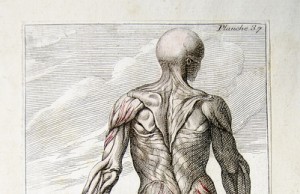Bodybuilding Supplements Increase Testicular Cancers

Bodybuilding supplements linked to testicular cancer.
In yet another irony of nature, a study has determined that taking bodybuilding supplements increases the risk of testicular cancer.
Go to any gym or bodybuilding center and you’ll find an array of powders and supplements to increase muscle mass. Or do an internet search. These range in types, but they generally do work – they spike the body’s levels of hormones and proteins to stimulate more muscle mass. But are they safe?
Testicular cancers in the U.S. have grown over the past decades. In 1975 there were 3.7 cases per 100,000 people. In 2011, there were 5.9 cases per 100k people – a significant increase. While certainly supplements may not be the only cause, a new study finds they are at least a contributing factor.
The study, from Yale University, has was published in the British Journal of Cancer. The study was led by now-professor at Brown University, Dr. Tongzhang Zheng. Dr. Zheng commented on the rise of testicular cancer cases over the years:
“Testicular cancer is a very mysterious cancer. None of the factors we’ve suspected can explain the increase.”
In this article
Cases from Connecticut and Massachusetts
Dr. Zheng and fellow researchers interviewed almost 900 men from Connecticut and Massachusetts regarding their use of bodybuilding supplements – including 356 people who were diagnosed with testicular cancer together with 513 control (cancer-free) men.
The study found that those who were taking bodybuilding supplements had a 65 percent increased risk of testicular cancer.
Those who began taking bodybuilding supplements at age 25 or younger had significantly more risk – equal to 121 percent increased incidence (100 percent equals twice the incidence).
More use increases cancer risk
But those who had taken more than one type of bodybuilding supplement had an even higher incidence. Those who used more than one supplement had 177 percent increased incidence of testicular cancer (2.77 times the incidence).
And those who had been taking bodybuilding supplements for more than three years had a 156 percent higher incidence (2.56 times the incidence).
What’s wrong with bodybuilding supplements?
Bodybuilding supplements contain a myriad of different ingredients. These include growth hormone or growth hormone stimulants, creatine, branched chain amino acids, glutamine, arginine, beta-hydryoxy-beta-methylbutyrate, and testosterone analogs.
A 2003 study from the GKT School of Medicine in London found that each of these ingredients can produce an androgenic effect when taken in larger quantities.
Many supplements contain creatine or androstenedione – common ingredients that can be classified as anabolic and androgenic because they have the effect of increasing testosterone levels along with building muscle mass.
Other ingredients may not be directly anabolic or androgenic – such as whey and others. However, in higher doses, because of their ability to stimulate the production of proteins, they can influence anabolic responses such as muscle mass building.
This process is also stimulated by extreme weightlifting, which in itself can increase androgens and testosterone levels along with other changes in hormone levels as a result.
Glutamine – another common bodybuilding supplement ingredient – has been shown to increase blood levels of growth hormones. Growth hormone retains protein levels and helps build muscle mass, but it is also androgenic for these same reasons.
Other supplement ingredients, such as dimethylamylamine – also called DMAA – has been shown to be toxic in some cases. A 2011 report cited DMAA involvement in the case of four deaths of U.S. soldiers. It has been banned in some areas.
Nature supplies healthy protein sources in the form of plant-based proteins. Great protein sources include nuts, beans, spirulina and other greenfoods. These combined with a good exercise routine will allow for balanced levels of androgens and growth hormones, together with adequate muscle mass.
REFERENCES:
Li N, Hauser R, Holford T, Zhu Y, Zhang Y, Bassig BA, Honig S, Chen C, Boyle P, Dai M, Schwartz SM, Morey P, Sayward H, Hu Z, Shen H, Gomery P, Zheng T. Muscle-building supplement use and increased risk of testicular germ cell cancer in men from Connecticut and Massachusetts. Br J Cancer. 2015 Mar 31;112(7):1247-50. doi: 10.1038/bjc.2015.26.
Brown University. Study finds cancer link to bodybuilding supplements. May, 2015
Weitzel LR, Sandoval PA, Mayles WJ, Wischmeyer PE. Performance-enhancing sports supplements: role in critical care. Crit Care Med. 2009 Oct;37(10 Suppl):S400-9. doi: 10.1097/CCM.0b013e3181b6f2e6.
Healy ML, Gibney J, Russell-Jones DL, Pentecost C, Croos P, Sönksen PH, Umpleby AM. High dose growth hormone exerts an anabolic effect at rest and during exercise in endurance-trained athletes. J Clin Endocrinol Metab. 2003 Nov;88(11):5221-6.
Brown JA, Buckley NA. Toxicity from bodybuilding supplements and recreational use of products containing 1,3-dimethylamylamine. Med J Aust. 2013 May 6;198(8):414-5.
DMAA Report by the U.S. Army.














